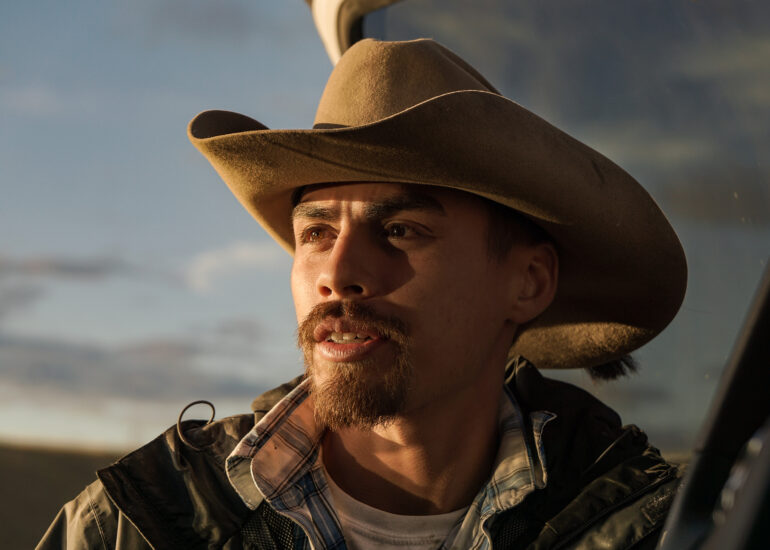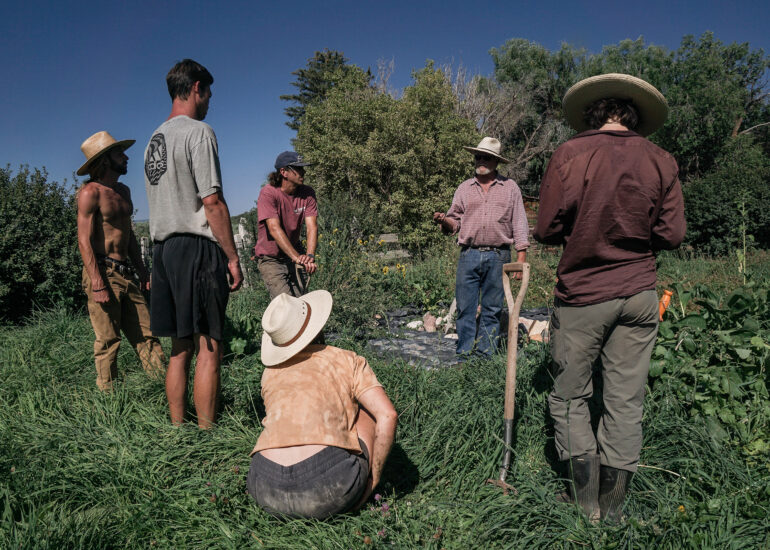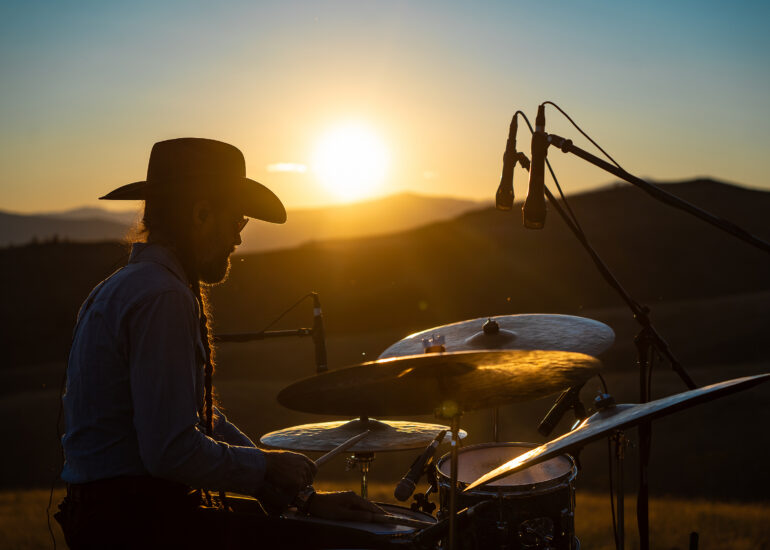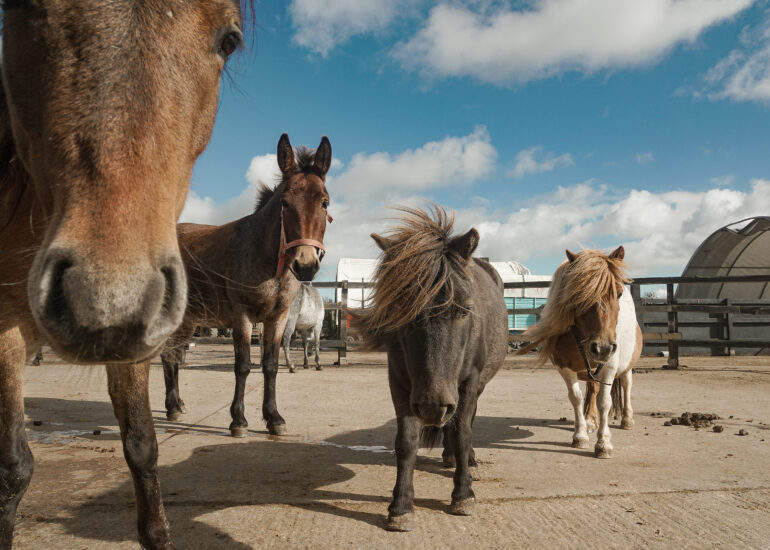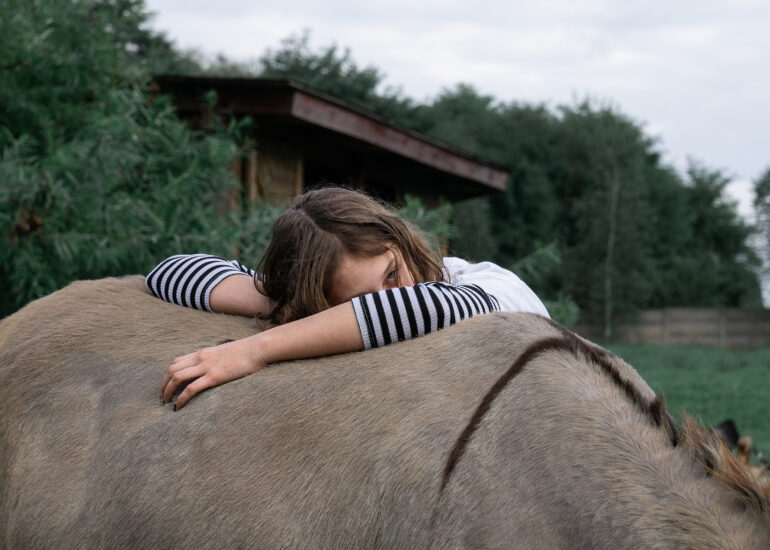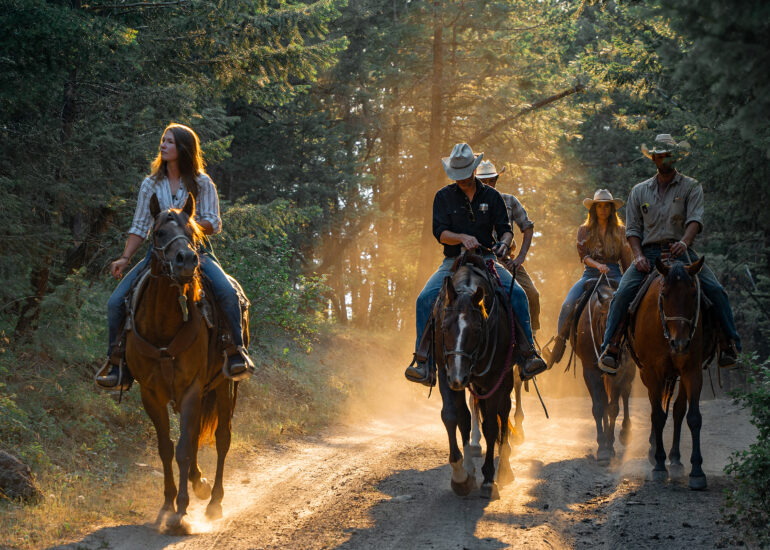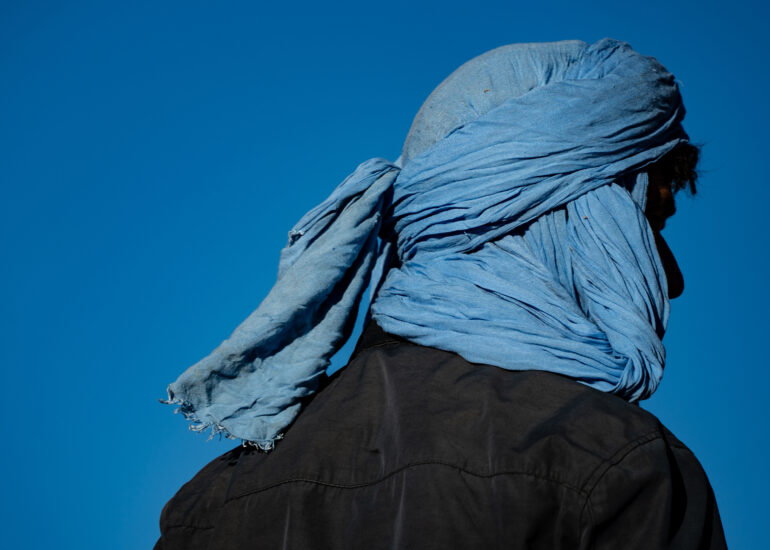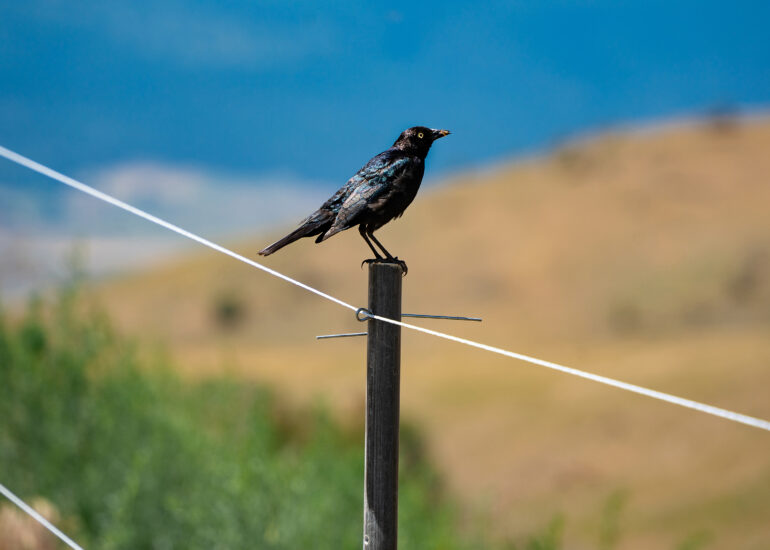Naankuse Wildlife Sanctuary
Portfolio
Naankuse Wildlife Sanctuary
The volunteering illusion: life among baboons and cheetahs in the heart of Namibia.
Volunteering?
When I look at these kids, I can’t help but picture their parents back home at a dinner party proudly telling friends that their daughter or son is “volunteering in Africa.”
Let’s be honest. They’re not.
This place is wonderful, well run, employing around 500 people, most of them local. It protects native wildlife and takes in injured, orphaned, or abandoned animals, some of which were once bought by people who thought a baboon or a cheetah would make a charming pet. It’s a great example of how money and intelligence can be used in service of an important cause.
But part of the fundraising strategy involves calling “volunteering” what is, in reality, a vacation. A well-designed, fairly expensive, experience-packed holiday: stepping into the cheetah enclosure, walking with baboons, tossing meat to the lions, going horseback riding, spending a night in a tent after spotting a rhino. Then, once a week, you spend ten minutes picking up animal droppings, chopping a few apples, or cleaning a water trough, just enough to maintain the illusion that you’re actually doing something for them.
I didn’t expect anything different, and I’m more than happy with how I spent my money. But what surprises me is how all the “volunteers” here—including full-grown adults!—genuinely believe that Africa needs wealthy Westerners willing to scoop poop, rather than wealthy Westerners willing to spend a lot of money on vacation.
“Volunteering in Africa” is a stylish label, one that fits nicely into any conversation. And to wear it, people are willing to believe just about anything.
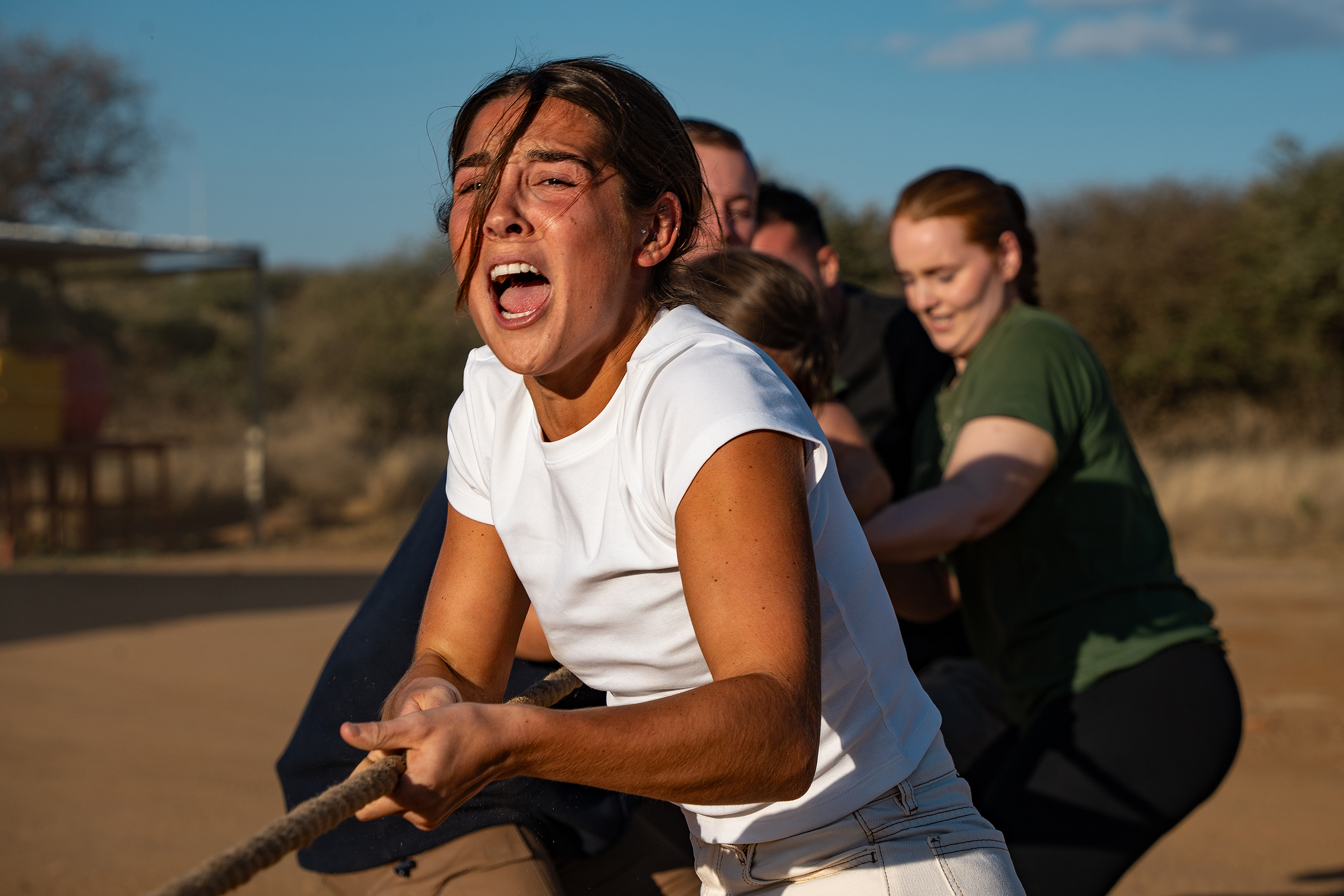
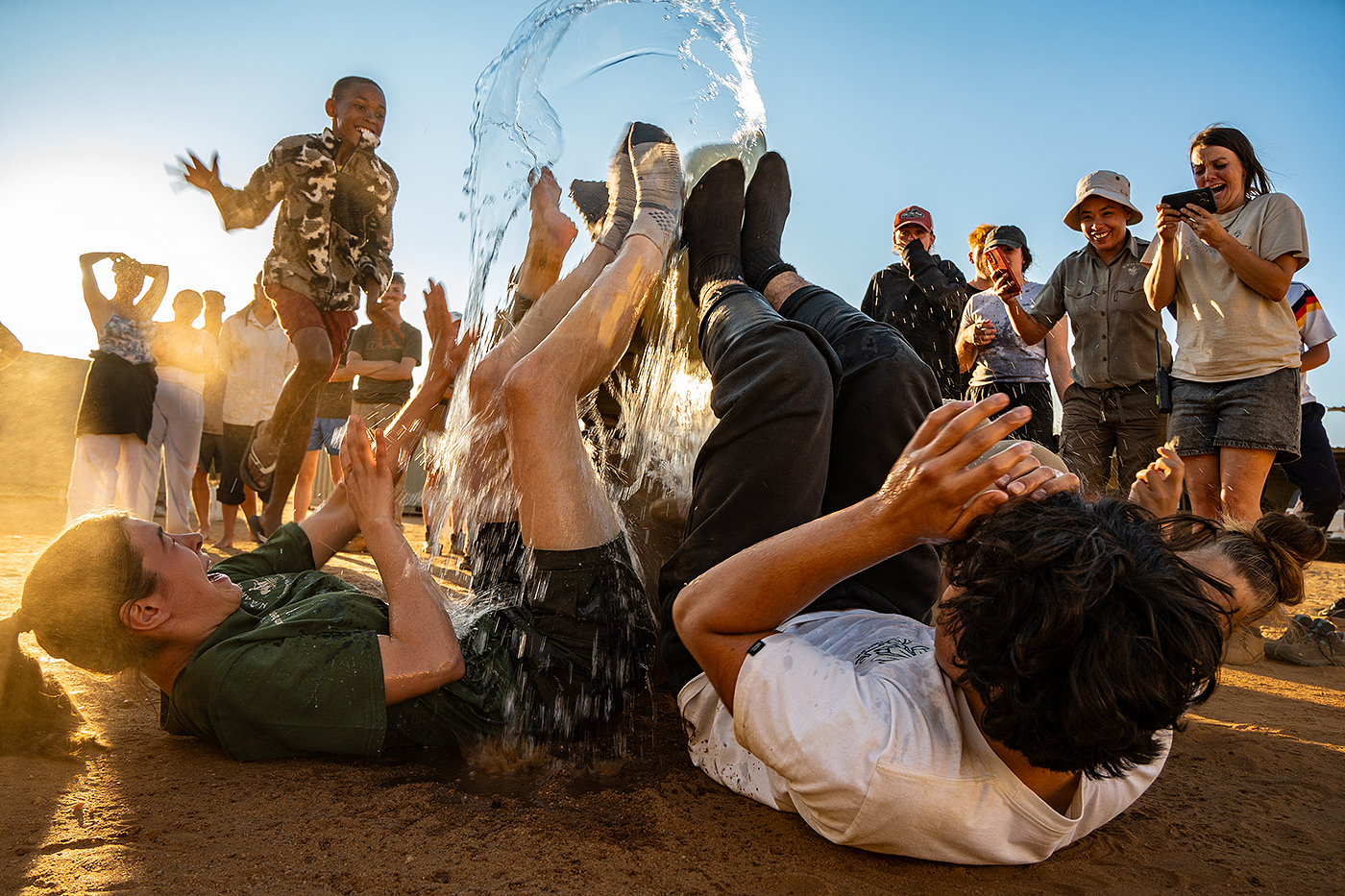
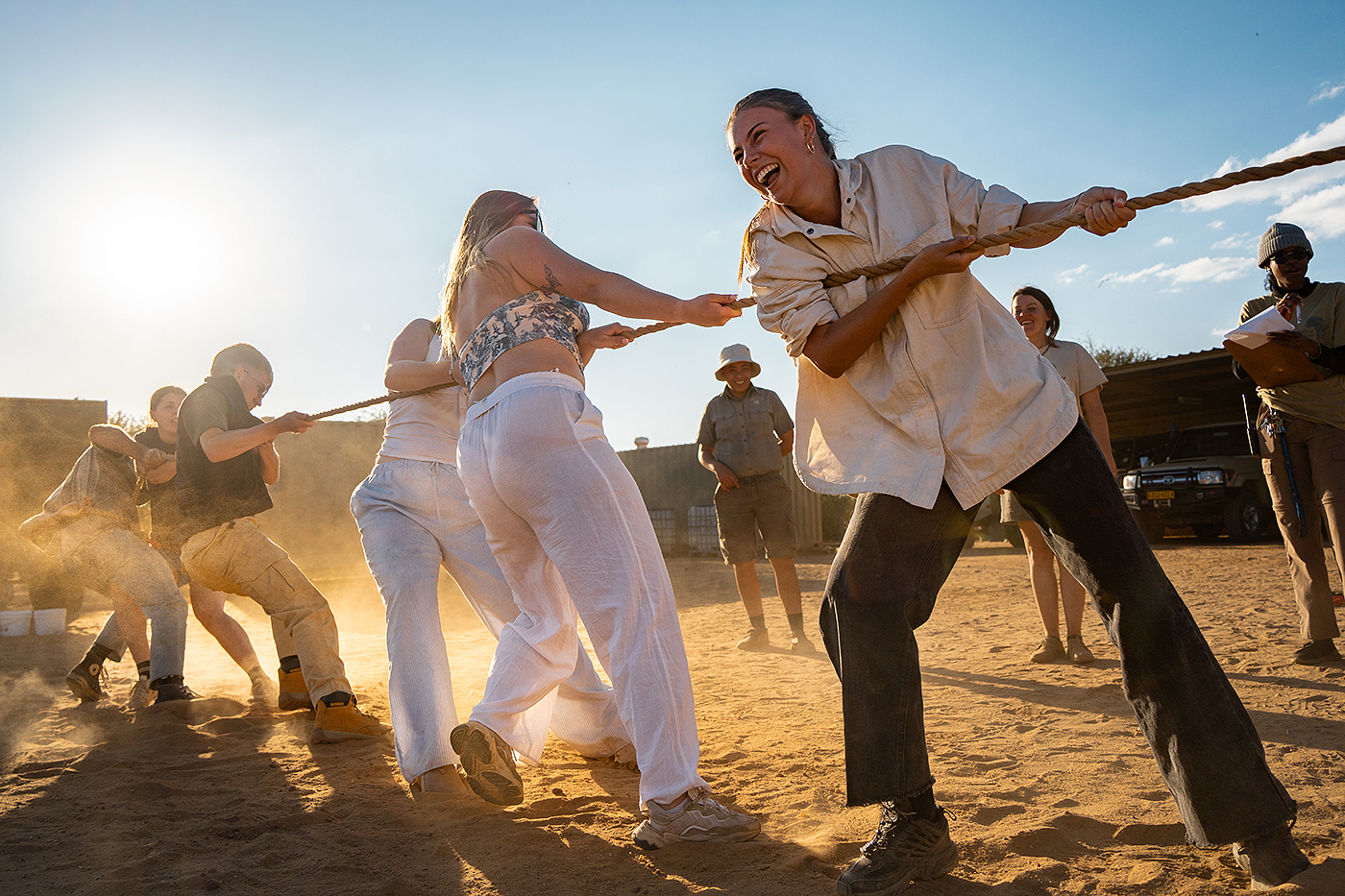
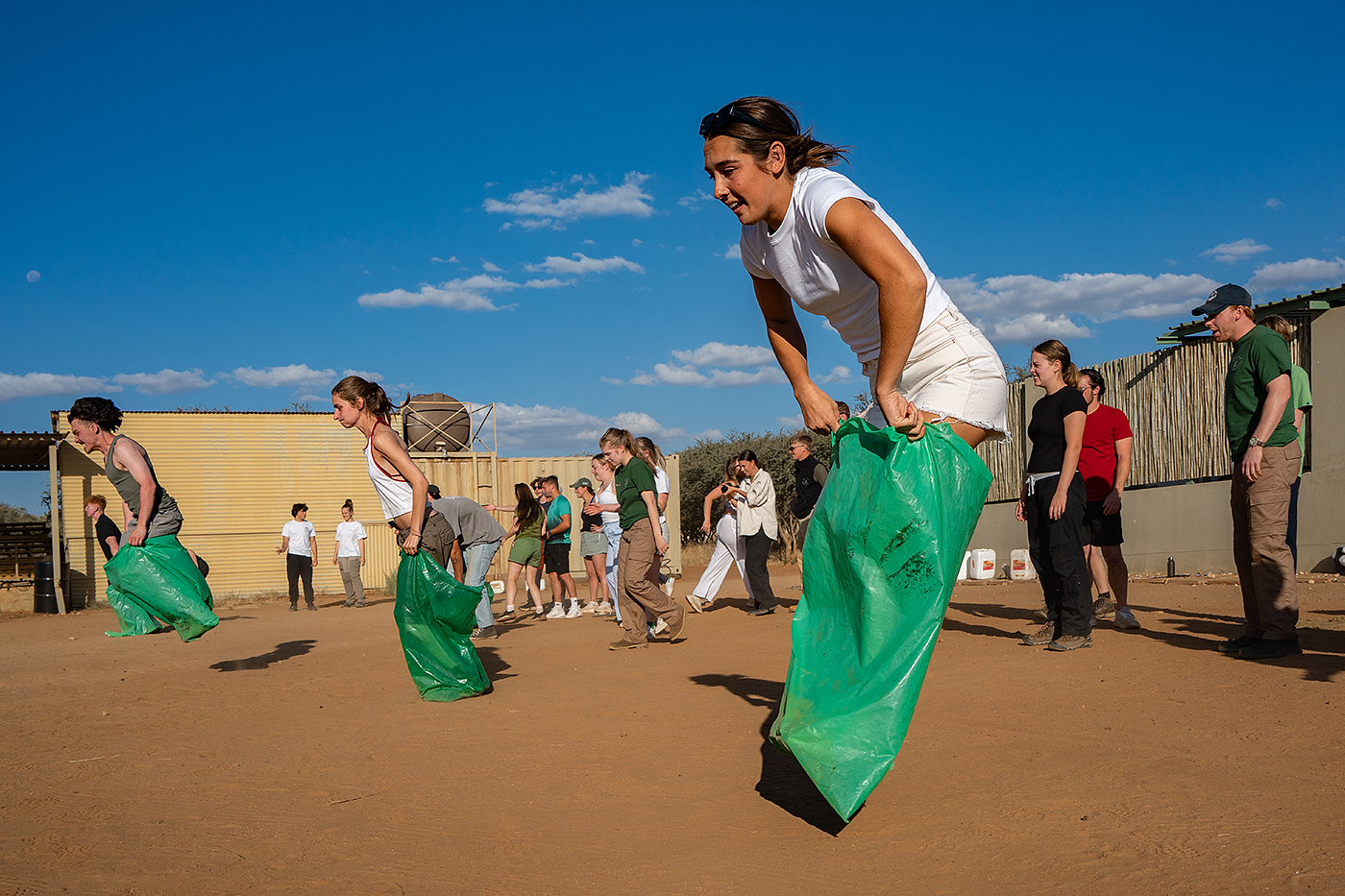
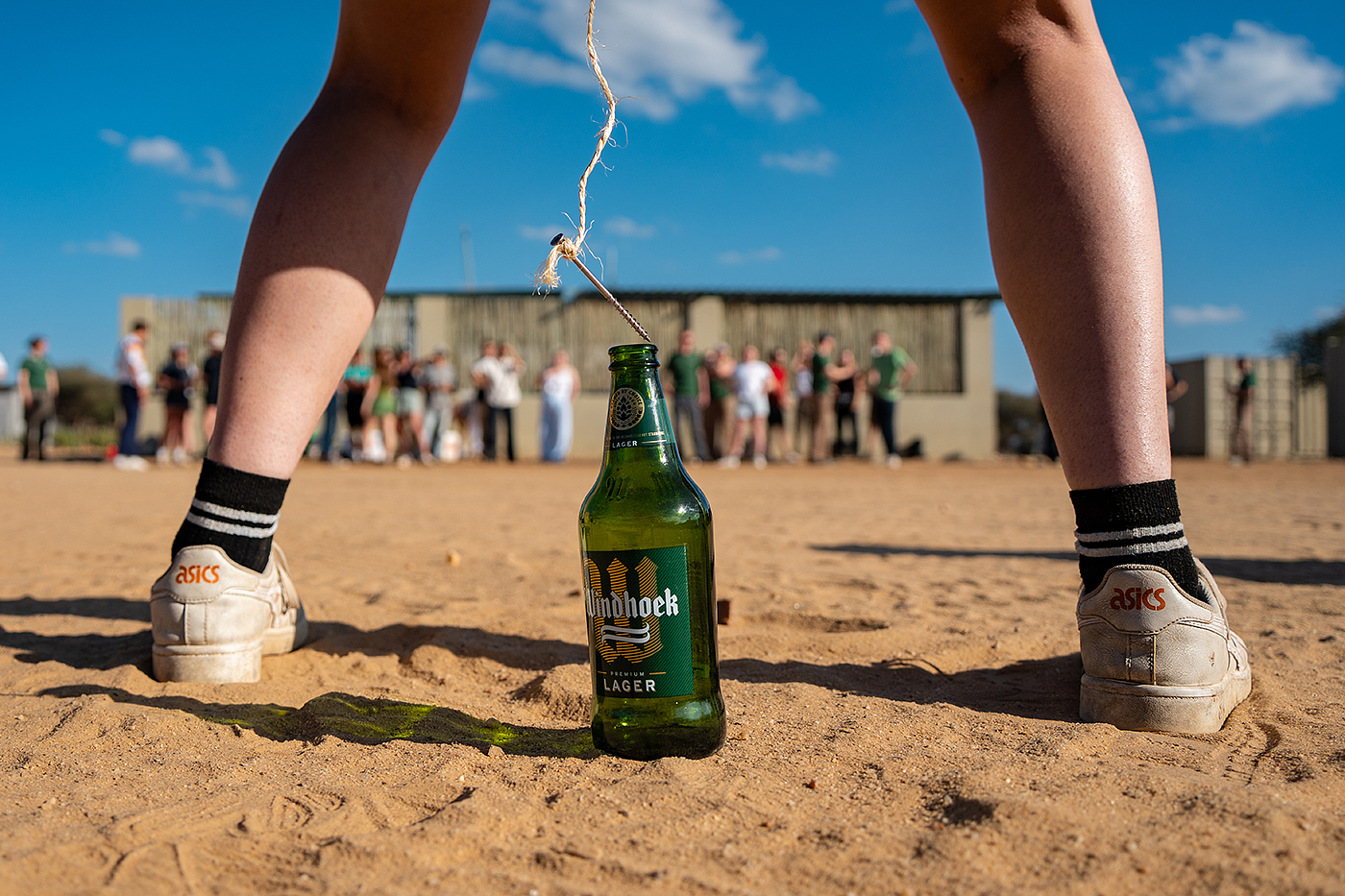
The beauty and all the beasts
It’s a reserve, and the cheetahs were orphaned and raised by humans. Still, sharing space and time with them is no less affecting.
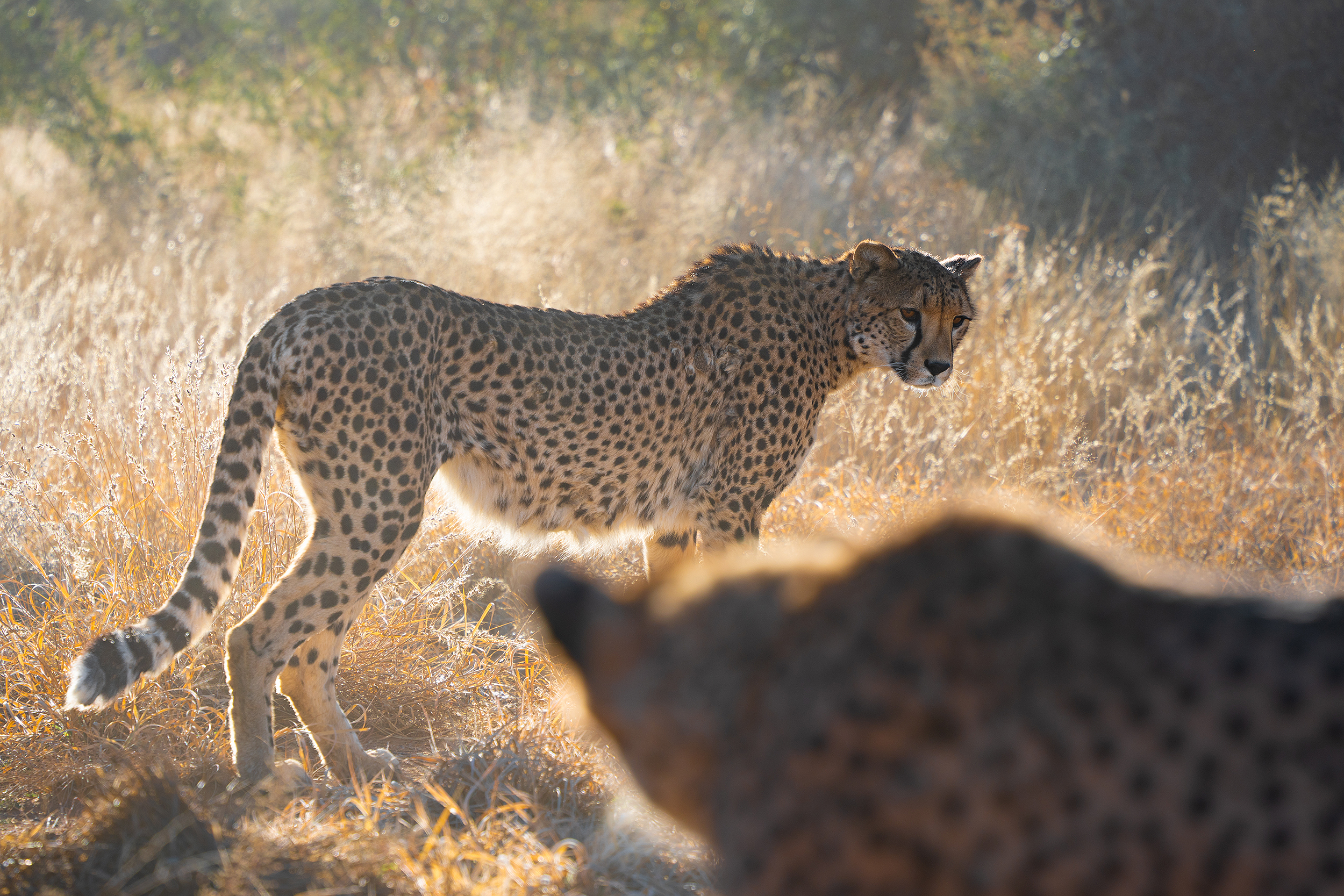
The most authentic experience
Meet-up at 5:45 p.m. with an unpredictable, ever-changing number of people: a mix of staff and so-called volunteers. A five-minute ride in the back of a pickup truck, down the dusty roads of the reserve, takes us to a green metal hangar. Once the padlock on the sliding doors is unlatched, someone drags out a plane I’d never dream of getting on: spindly wings, toy-sized wheels, and a tiny propeller. Believing that thing can fly takes either bold imagination or blind faith.
We roll out our mats while Arnas throws together a workout plan featuring numbers far too ambitious to be taken seriously. You can’t put those figures next to burpees.
We start warming up just as our shadows stretch long across the ground, and by the time we actually begin, they’ve already slipped away.
“Halfway there,” “10 seconds left,” “rest, along with tired, amused glances, set the pace for this hour that wraps up the day.
I always eat too much (a running theme in recent years) to fully enjoy the workout, but I love how real this place feels. We’re nothing but moving bodies: no names, no roles, no backstories, no small talk. You show up, get tired, get better. A high-five, and it’s done.
Then everyone goes back to their box. But for one hour, we were truly together.
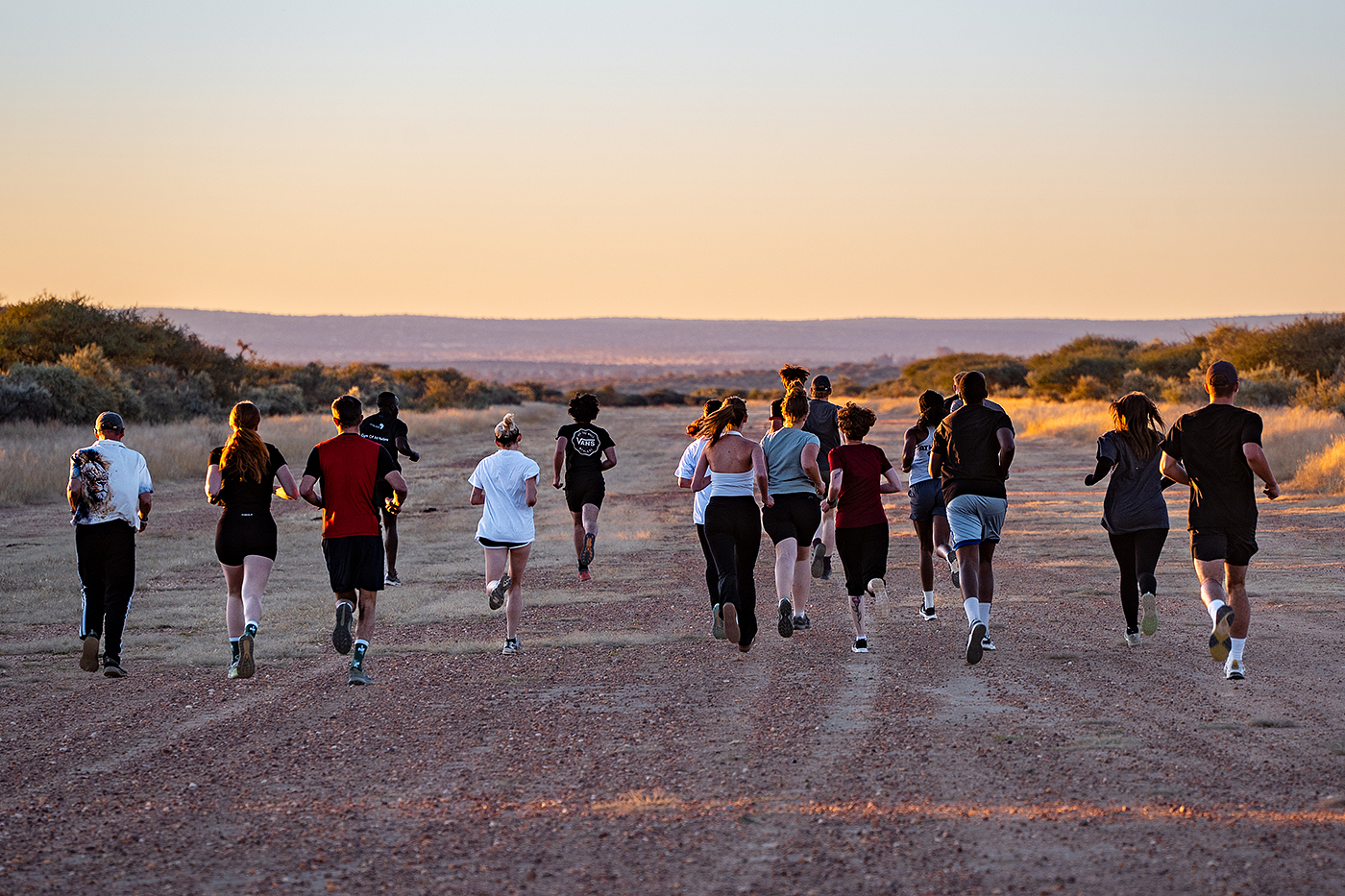
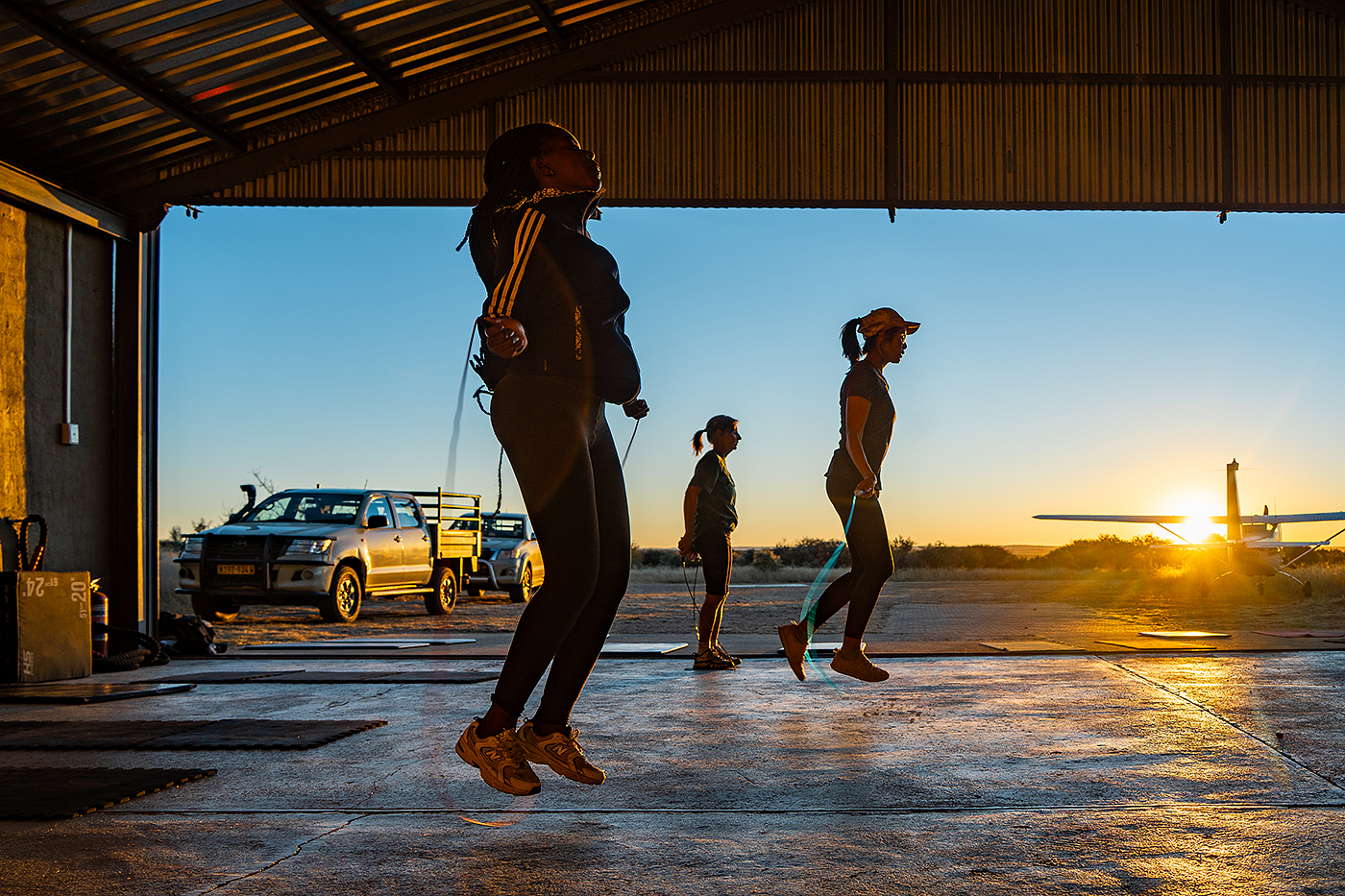
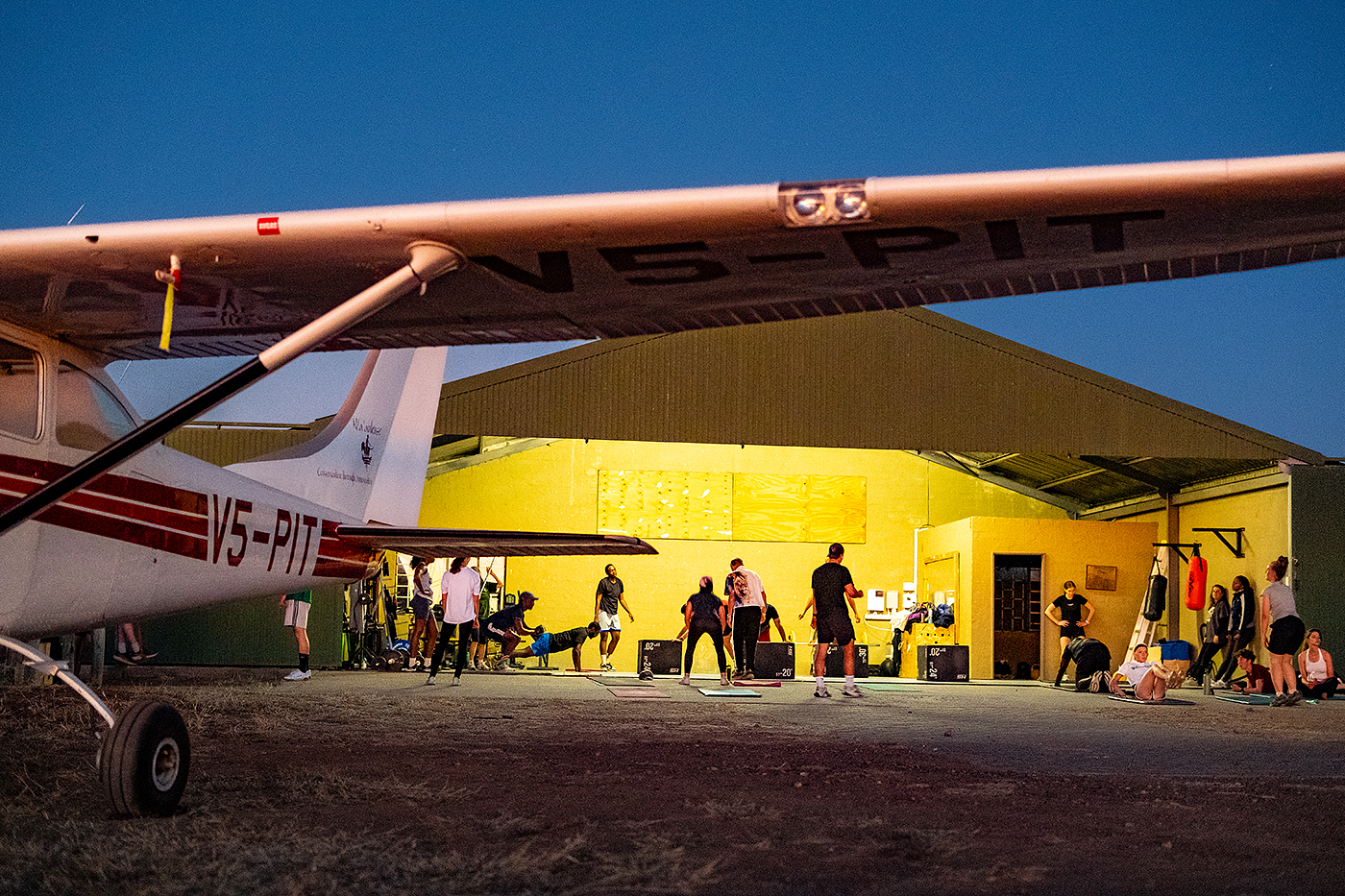
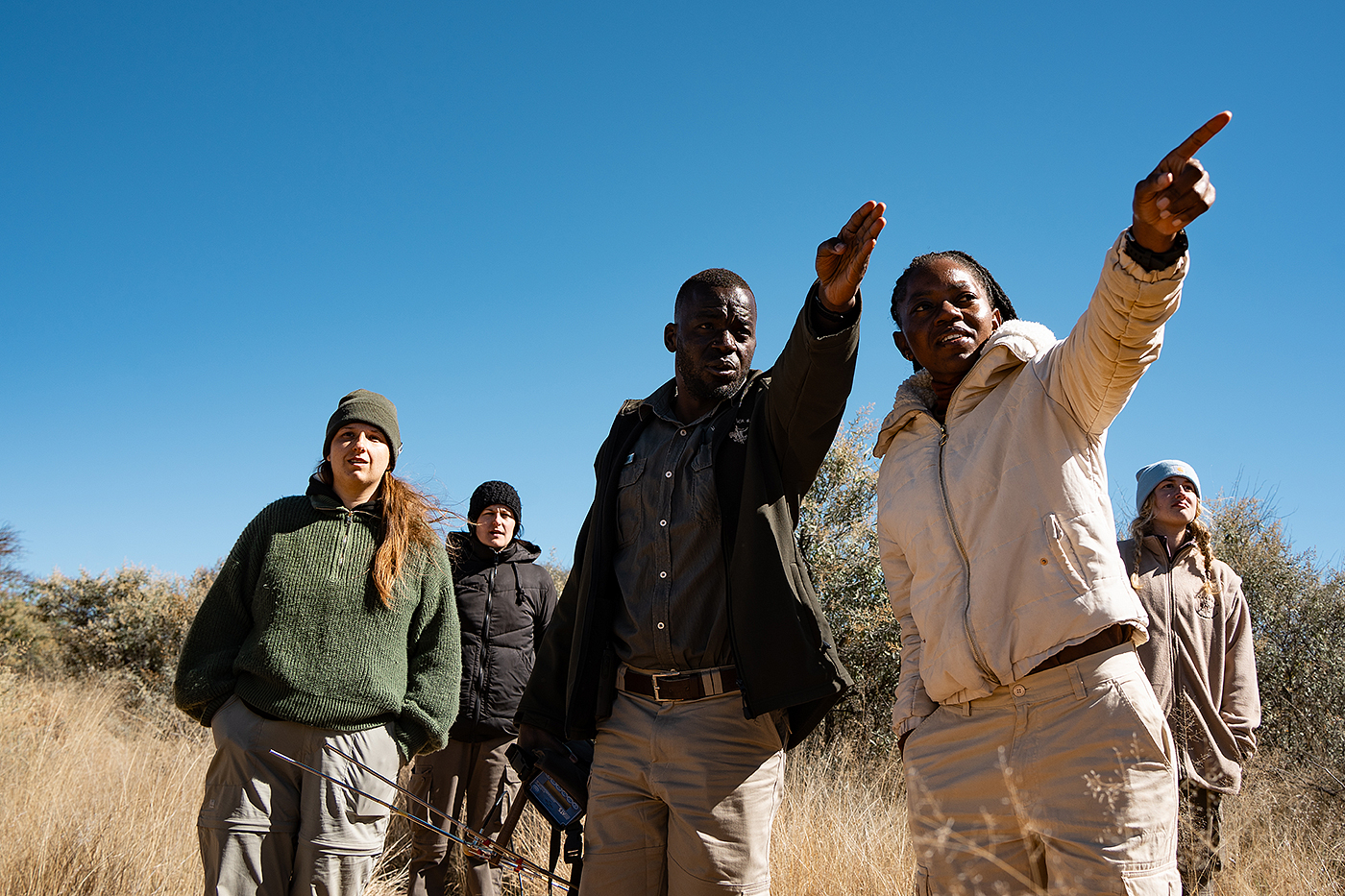
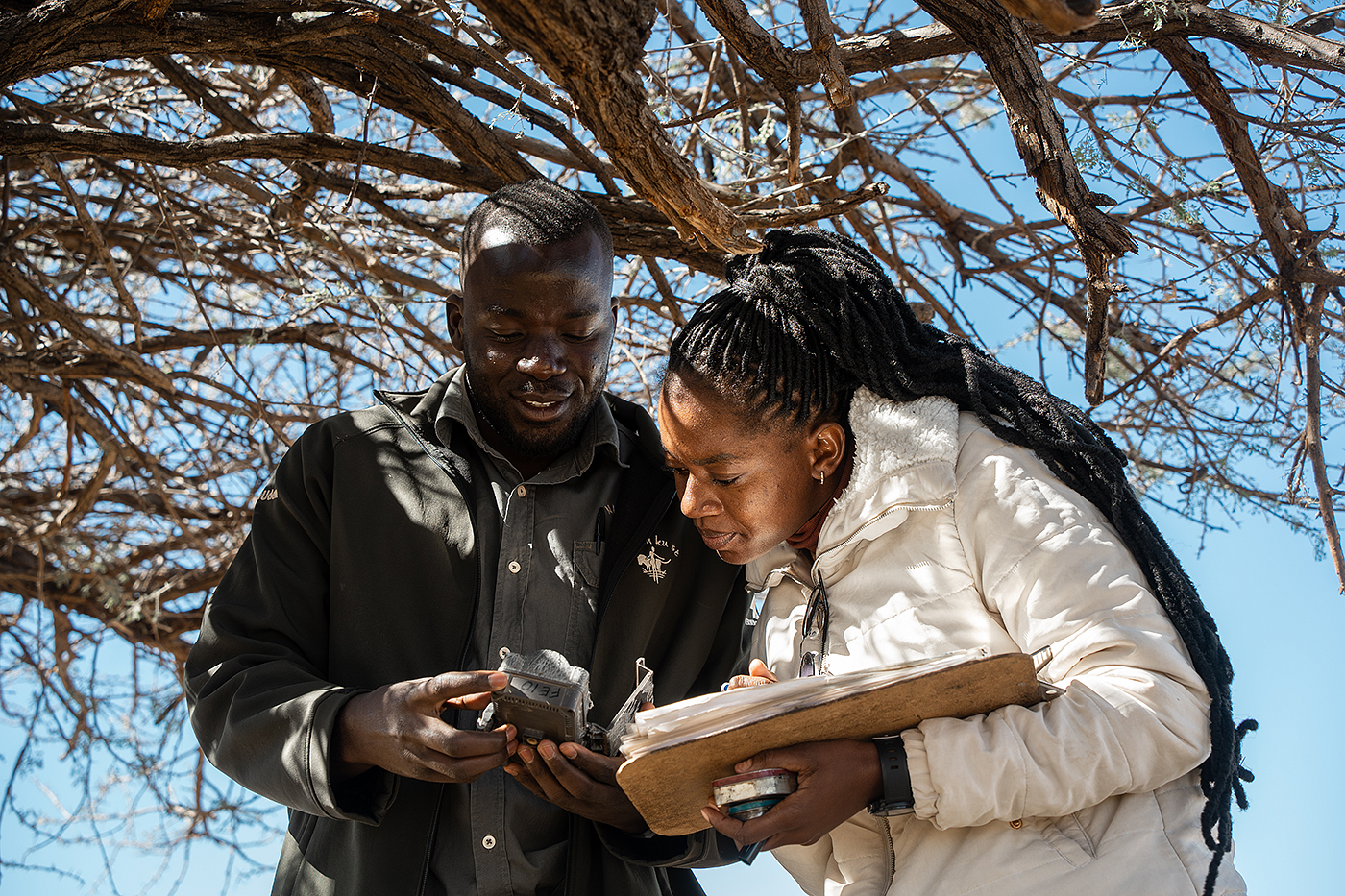
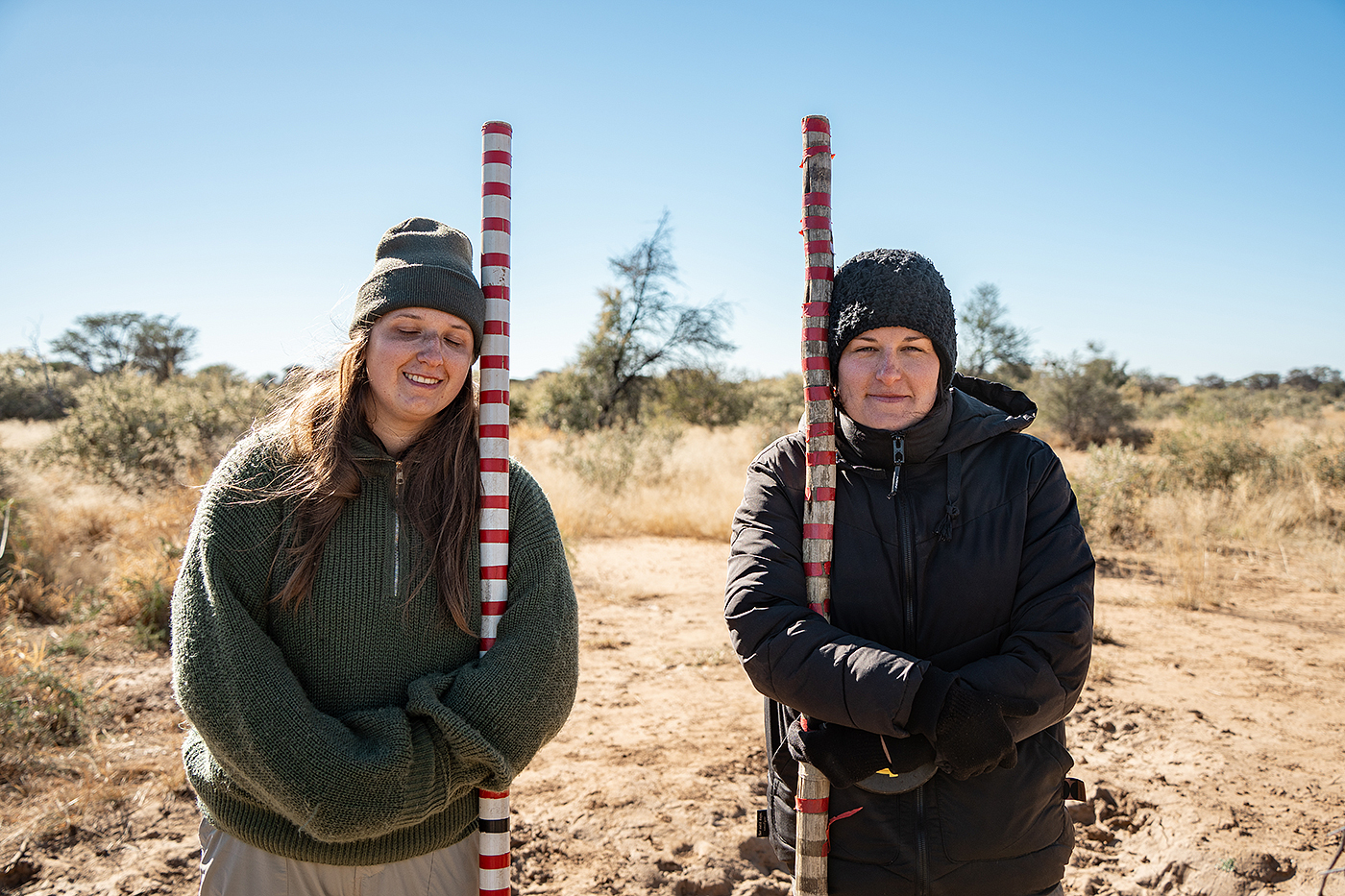

Baboons
Why are we drawn to some animals and not others? At what point in life does someone become a cat person or a dog person? What is it about horses that makes someone want to dedicate their whole life to them? Why do we feel the need to recreate the marine world in the corner of a living room? And what kind of childhood did those people have—the ones who keep a snake or a tarantula in their home?
Primates, maybe too similar to us, tend to stir conflicting emotions: some fear them, some don’t trust them, some feel compelled to share part of their life with them.
I’m deeply drawn to them. I see in them the way we observe the world, but more sincerely. I recognize our movements, but without the posing. I find our same emotions: anger, fear, affection, joy, disappointment, wonder. But without the weight we tend to pile onto them.
What I like about baboons is their aggression, the confidence with which they steal whatever they want, and the violence with which they defend it if you try to take it back. I like their wild, physical games, their screams when they get angry. The way they jump on you without hesitation and pull your hair. I like how confidently they hug you, take your hands without asking.
I like them because they are everything we’ll never be.
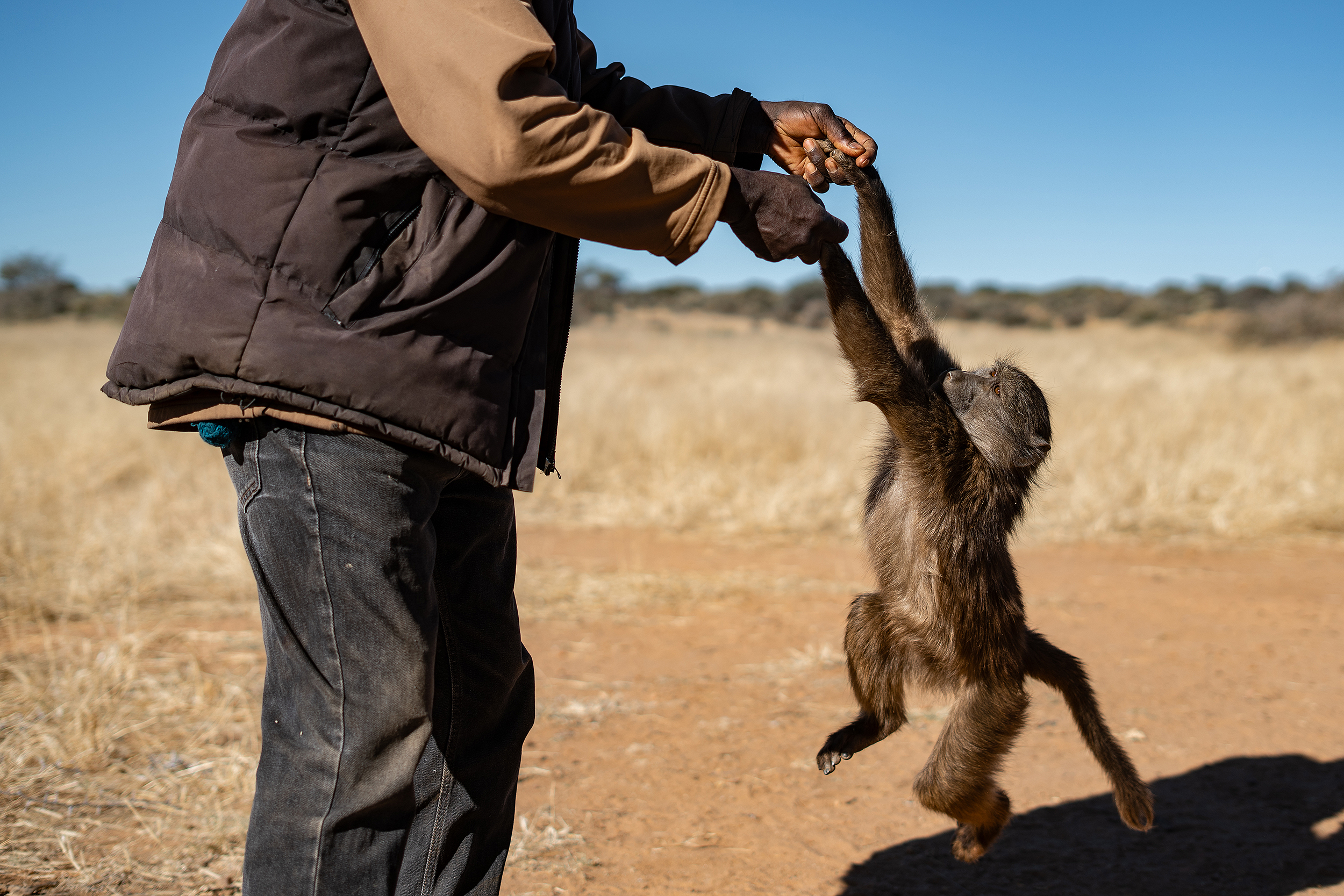
The babies
They like necklaces, bracelets, earrings, phones, cameras, rubber bands, zippers, shoelaces, and most of all, hair.
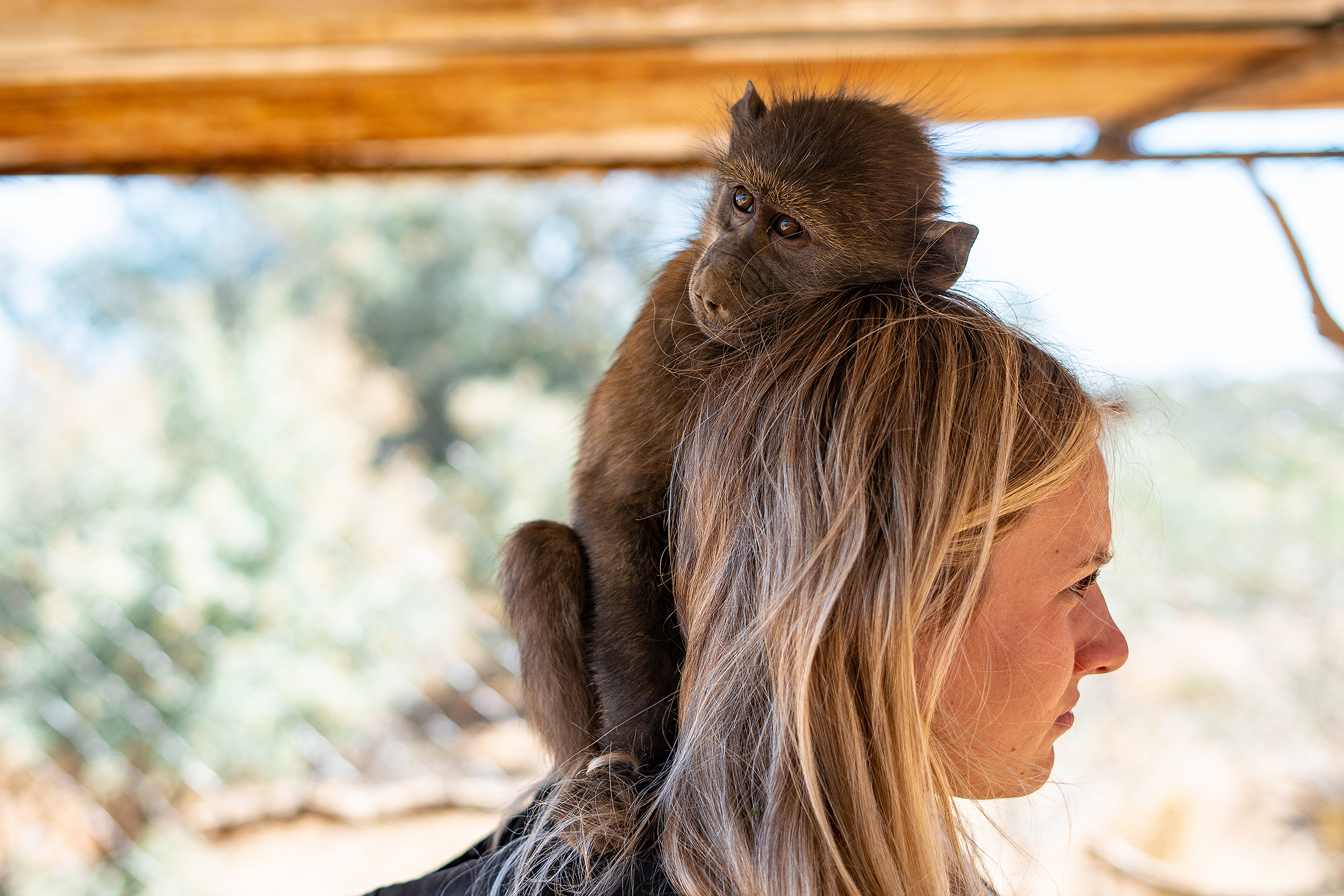
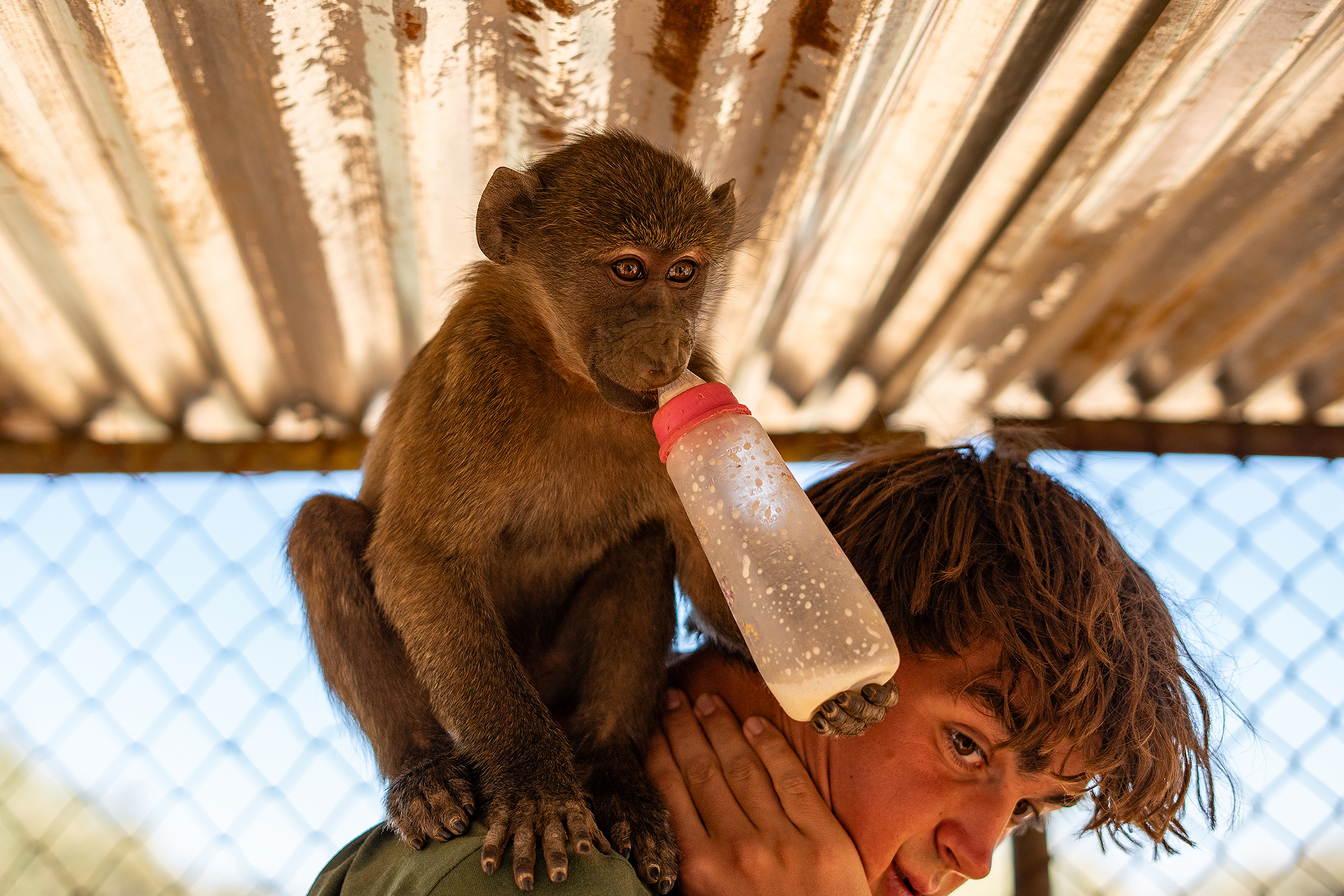
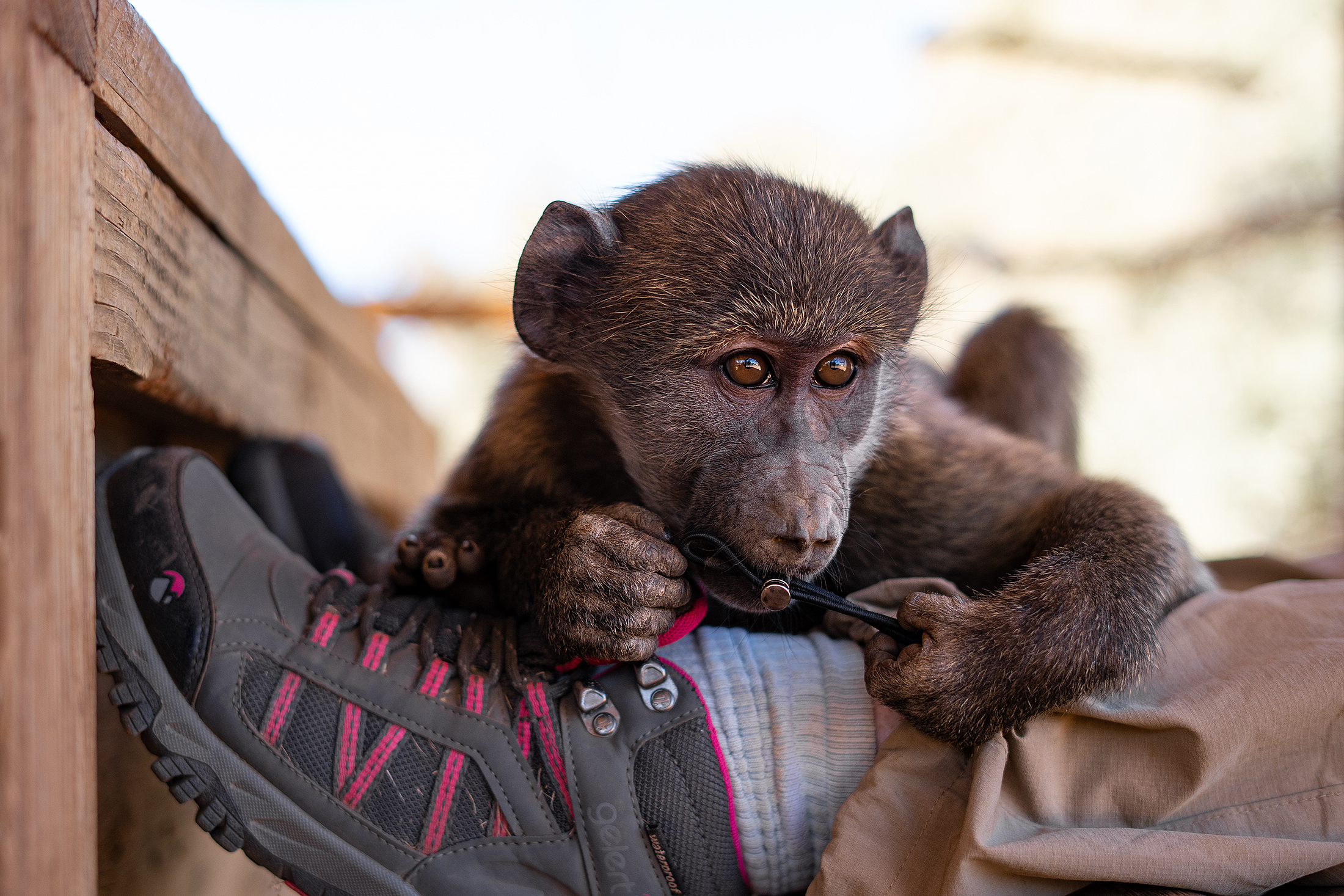
Recently in Portfolio
elettrapistoni



















